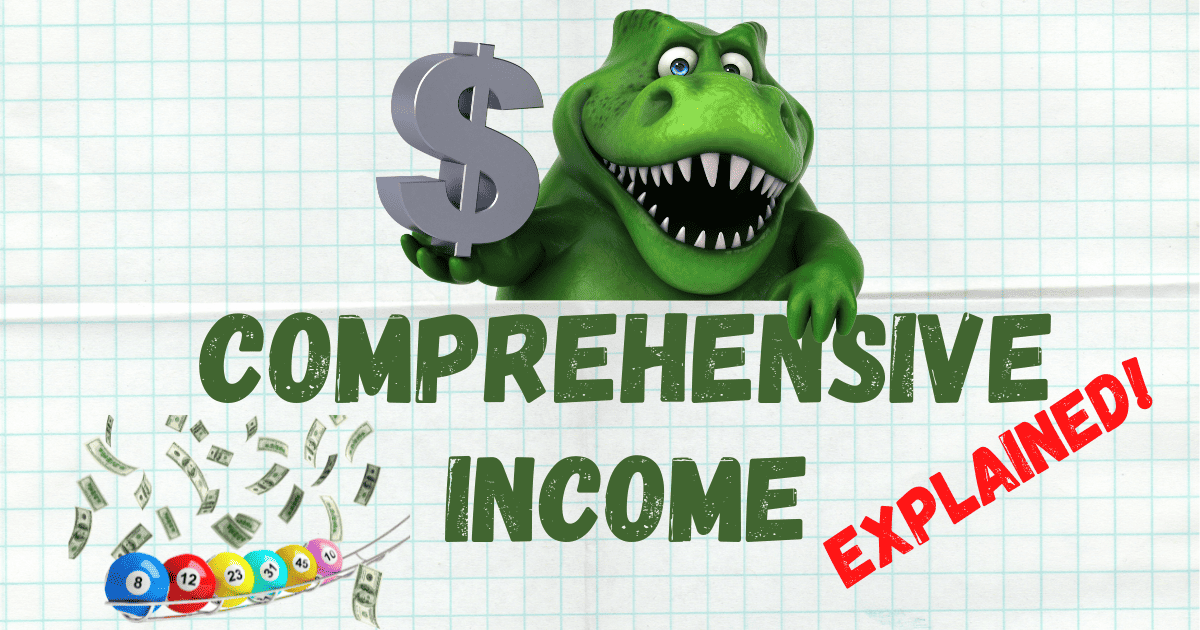Comprehensive income is a concept in accounting that refers to the change in a company’s equity during a period, resulting from transactions and events outside of the company’s ordinary operations. It is a broader measure of a company’s financial performance than traditional net income because it includes gains and losses that are not included in the income statement.
For a video explanation of Comprehensive Income, watch this:
Comprehensive income includes two types of gains and losses: those that are recognized in the income statement and those that are recognized outside of the income statement. Gains and losses that are recognized in the income statement include revenue, expenses, gains, and losses that result from the company’s ordinary operations. These are the same items that are used to calculate net income.
Gains and losses that are recognized outside of the income statement include items such as changes in the fair value of investments, foreign currency translation adjustments, and gains or losses on pension plans. These gains and losses are not included in the calculation of net income but are instead reported as a separate component of comprehensive income.
The components of comprehensive income are typically reported in a separate statement of comprehensive income or in the notes to the financial statements. The statement of comprehensive income shows the total comprehensive income for the period, which includes both the income statement items and the items recognized outside of the income statement.
Comprehensive income is an important measure of a company’s financial performance because it provides a more complete picture of the changes in a company’s equity during a period. By including gains and losses that are not included in the income statement, comprehensive income can provide insight into the long-term financial health of a company.
Investors and analysts may also use comprehensive income to evaluate the performance of a company over time. Because comprehensive income includes items that are not included in net income, it can provide a more accurate representation of a company’s performance, particularly if the company has significant gains or losses outside of its ordinary operations.
In conclusion, comprehensive income is a broader measure of a company’s financial performance than traditional net income. It includes gains and losses that are recognized outside of the income statement, providing a more complete picture of the changes in a company’s equity during a period. Comprehensive income is an important measure for investors and analysts because it can provide insight into the long-term financial health of a company.

